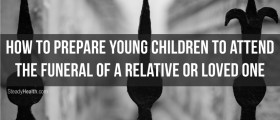
Anticipatory grief is an emotional reaction that occurs before an approaching loss of someone very close. The normal mourning process occurs always when people are expecting a death, but the anticipatory grief has many of the same symptoms as those experienced after the death has occurred. Essentially, it is a feeling of loss before a death or any other dreaded event occurs. It is not only hard for the affected person, but it also upsets the people around them. Anticipatory grief is not such a rare phenomenon. It is a personal process that requires acceptance of the reality of the death. Not everyone feels ready to face this truth. Some people may feel like accepting death is the same as giving up on their loved ones.
Symptoms of anticipatory grief
The normal grief process develops through five stages: denial, bargaining, depression, anger and acceptance. All of these stages are also present in anticipatory grief. People are often overwhelmed by the feelings of anxiety, dread, guilt, helplessness, and hopelessness. Depression is common and changes in eating, sleeping and bowel habits may also occur.
Dealing with anticipatory grief
Knowing how to cope with anticipatory grief is very important as it allows a person a chance to solidify the relationship and bring it to completeness. The acceptance of death will provide an opportunity to resolve issues with the dying person and to say goodbye.
Holding back the tears takes a lot of energy and gradually exhausts the person. The first method in dealing with anticipatory grief is to let go all of those suppressed emotions and get the emotional relief. It is also important to share the emotions, and talk about the problems, fears and concerns with the others. Talking to the close friend or sharing the concerns with an on-line support group is highly recommended although it isn’t always the easiest thing to do. People are often suppressing their emotions while trying to remain strong for the patient and the others.
Counseling is another effective way of dealing with anticipatory grief. Councilor will not only talk about the emotional issues and listen to one’s story, but he will also provide comfort and effective methods of dealing with anticipatory grief.
Writing a diary is another way to let go all those fears and concerns. Short stories, poetry or reporting on what has happened over the course of a day or other period, will also help one know himself better and spot his own strengths.

















Your thoughts on this
Loading...